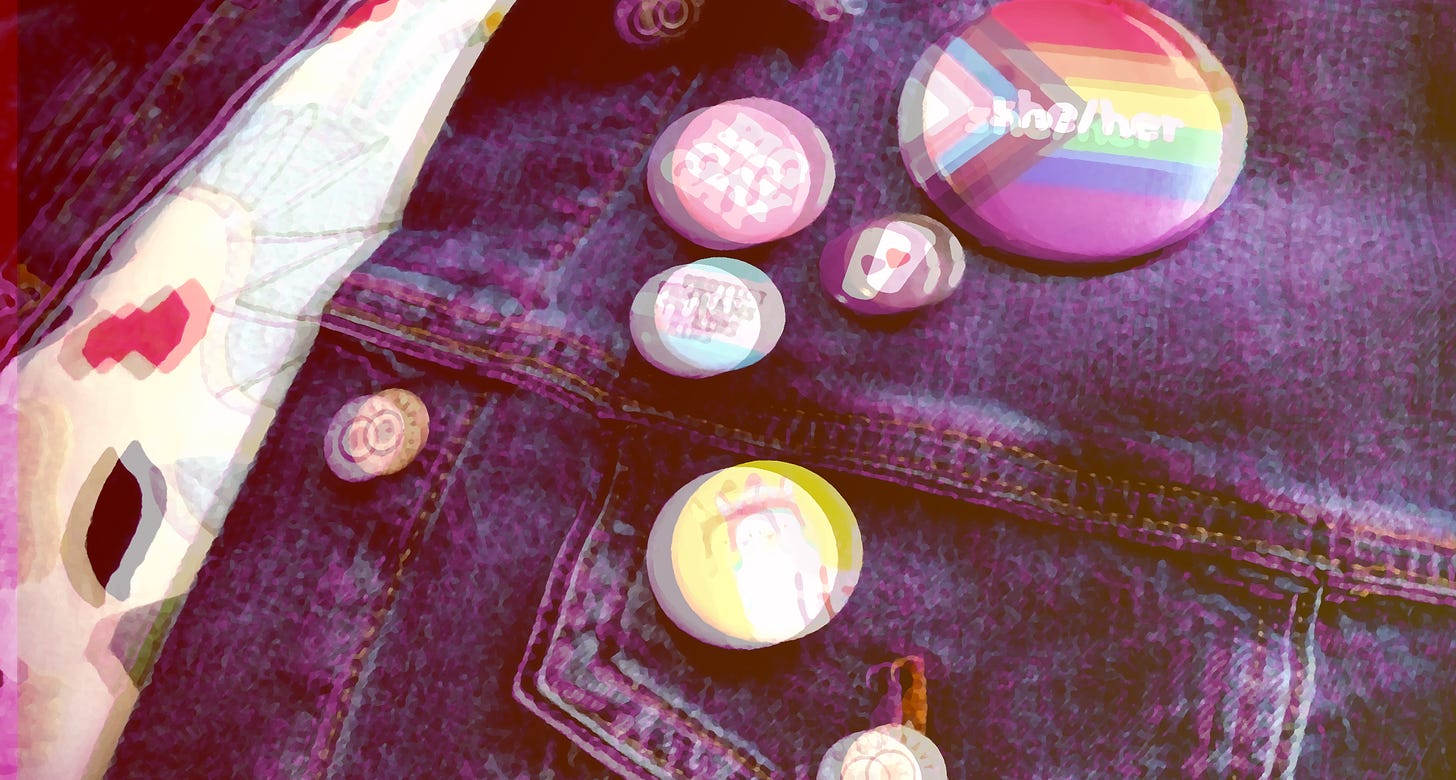Nice Privilege
Remember when people tried to make Nice Privilege a thing?
Years ago when we were baby anarchist punks I remember people tried to make Nice Privilege a thing. I think the logic was that some people, because of their neurology or their trauma or whatever, couldn’t come across as being as ‘nice’ as other people, and so more agreeable people therefore had Nice Privilege. This could then be leveraged if someone told you were being an asshole; they should check their privilege. Not everyone had the luxury of being likeable.
We laughed and laughed at the idea, walking down Notre-Dame Ouest in our combat boots on our way to band practice at the Fattal. In those days we called the kind of people who would take this stuff seriously the PC Kids. Wide-eyed, sanctimonious, and vibrating with tension, they weren’t exactly our enemies, but we thought of them as fairly ridiculous at best and sometimes downright scary at worst, and we mocked them frequently. We’d make fun of their breathless Facebook posts, we’d despair at the pettiness of their callout campaigns. We wrote songs about their tendency to exile people and parodied their obsessive identitarianism. Of course they would come up with something like Nice Privilege! Of course they would find a way to turn being completely unlikeable and unapproachable into both a virtue and a point of victimization. Of course.
Around this time, everyone was becoming totally fixated with the idea of privilege. Privilege became the main method of understanding everything about power, the main tool for evaluating every social interaction, and the main framework for articulating goals. Everyone’s identities could be charted on a series of sliding scales ranging from victimized and virtuous to oppressive and guilty. In that scene, reminders were circulated regularly that being privileged didn’t have to mean you were bad, as long as you ‘checked’ your privilege frequently, but in practice everybody knew the score. The more privilege you could be accused of having, the thinner the ice you were on; and the more oppression points you could rack up, the more you could leverage identity into clout. An arms race ensued, which everyone knew was happening but no one could acknowledge. People’s anxiety and discomfort with their sex or gender could be converted into social capital through the adoption of custom gender identities. Mental illness could be inverted from a condition casting doubt on one’s testimony to one conferring epistemic authority. The one-drop rule came back with a vengeance. And if you could come up with new ways to be oppressed – for example, not having Nice Privilege – so much the better.
Somehow, in the intervening years, the basic tenets of the PC Kids’ brand of breathless, quivering puritanism went from being a fringe position among a cohort of young adults straddling the intersection of punk, queer culture, student life, and anarchism to being the hegemonic position across most of the mainstream left. And although Nice Privilege never caught on, thank fuck – I think it was too wildly antisocial even for that crowd – the logic behind it lived on, because the logic of the privilege arms race continues.
Within that logic, to be basically fine, happy, ordinary, well-off and agreeable is just about the worst possible thing you could be without being a Nazi or a rapist. It would make you a non-person, a person without identity, and thus both defenceless and without merit: a commoner. Victimhood is strength, and therefore you need at least one or two identities that mark you as oppressed, or could reasonably be stretched into marking you as marginalized – irritable bowel syndrome could work as a disability, for example, and a chronic crushing sense of meaninglessness makes a serviceable mental illness. Being generally content and cheerful too often, in too public a way, definitely could cast doubt on your claims to victimization and should be avoided. If you’re not queer, or nonmonogamous, or into kink, or an ex-sex worker, or at the very least someone who does burlesque, you’re doing it wrong. And while a kind of saccharine, infantile, ‘I am bb’ cutesiness is allowed, being truly nice – being curious about other people, declining to cast judgement, being welcoming, giving everybody the benefit of the doubt – is nonsensical. It makes it impossible to participate in the game.
And that is why people invested in this game, this subcultural set of social rituals, react so incredulously when you advocate a change of tactics, a mode of operating for the Left that would make us more agreeable and would bring in more ordinary people. You’re suggesting to a knight that he abandon his armour and his code of honour and fight alongside peasants. Nothing could be more humiliating than to stand side by side by someone illiterate in your heraldic codes, who doesn’t know or care what the she/they/fae in your Instagram bio means. Nothing could be more injurious to one’s sense of dignity than to have to spend time with some wretched bumpkin who thinks ‘abuse’ refers to, well, abuse. And the notion that one should give up one’s sword and one’s horse, one’s haughty countenance, one’s chivalric prestige, in order to be nice to nobodies – well, it’s just outrageous. Who are you to tone-police a disabled, mentally ill nonbinary femme?
This is an excerpt from my zine, What Else is There to Live For 3. You can get the zine at the Fucking Cancelled store.


